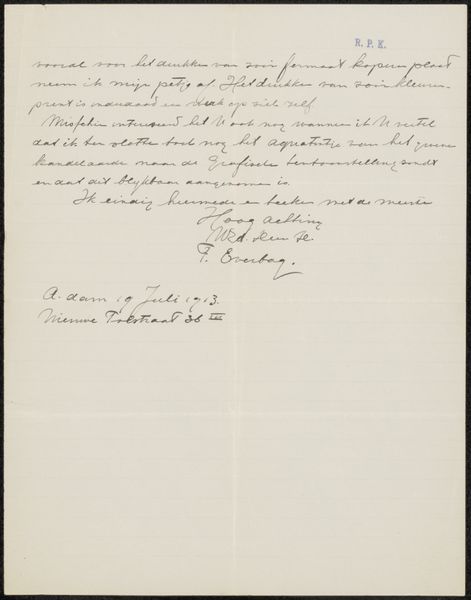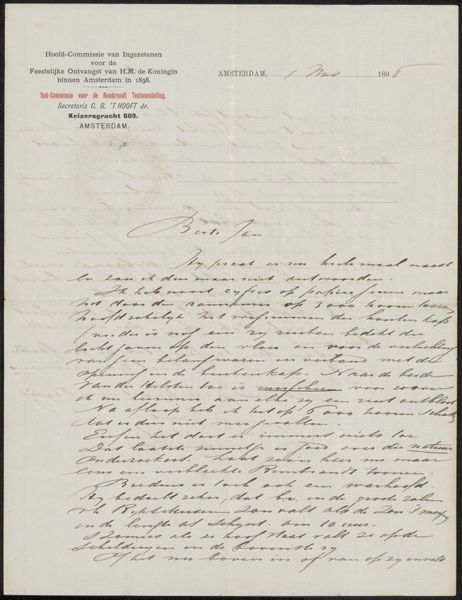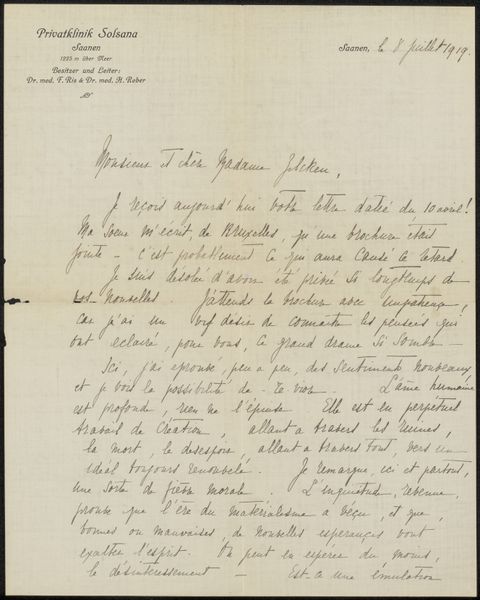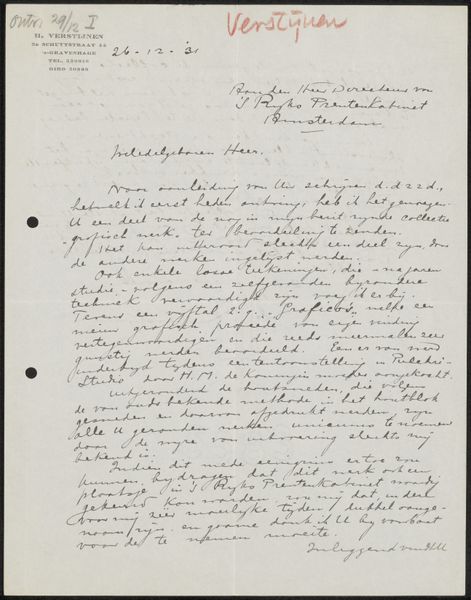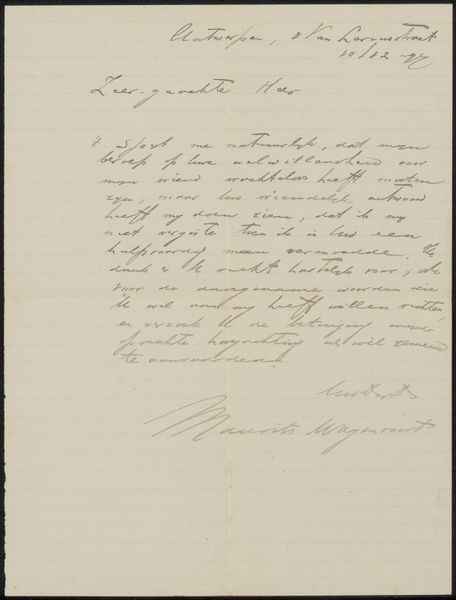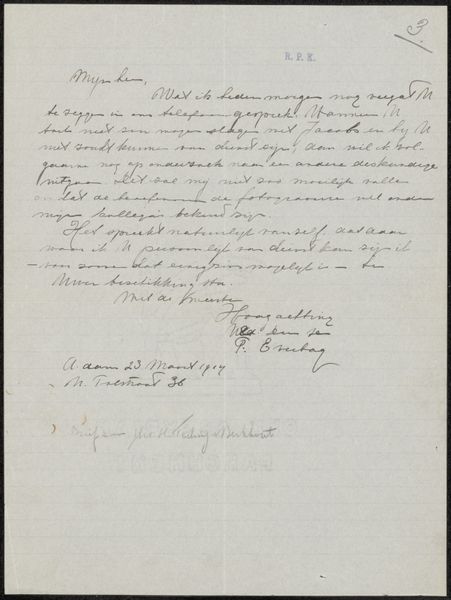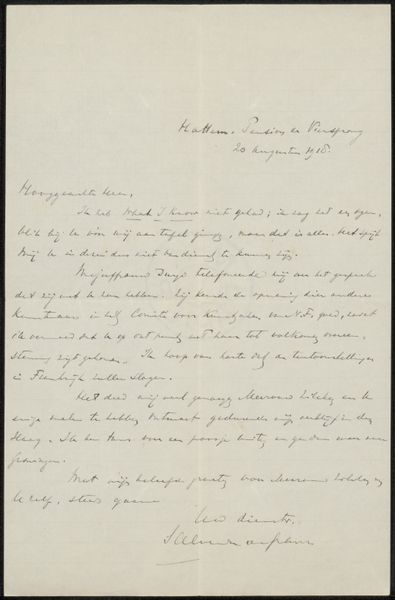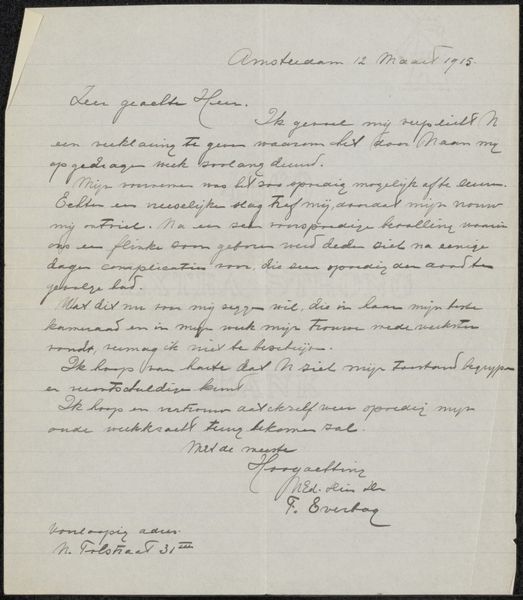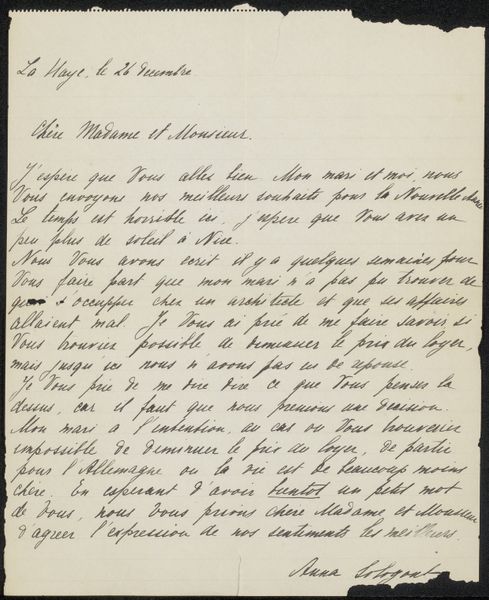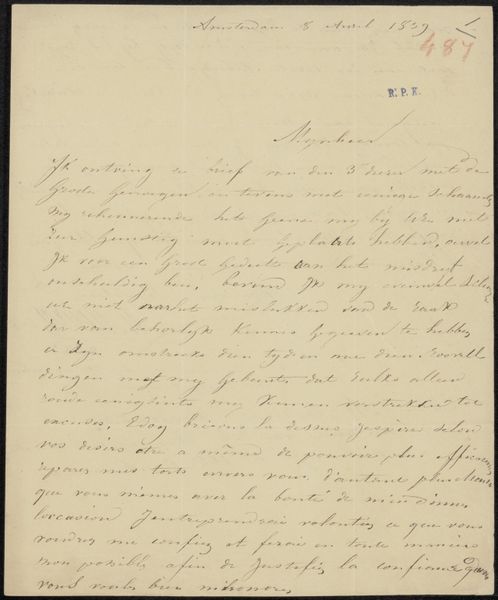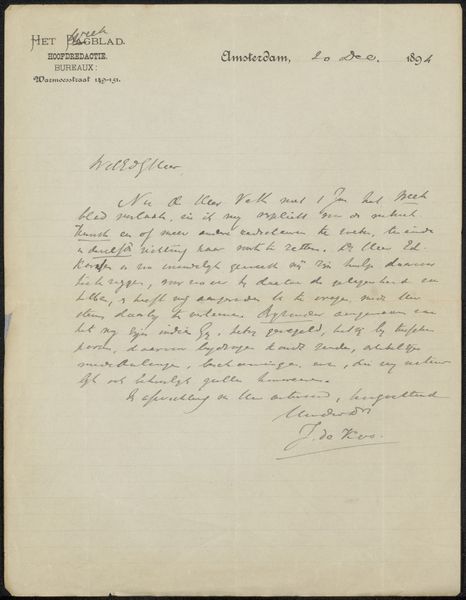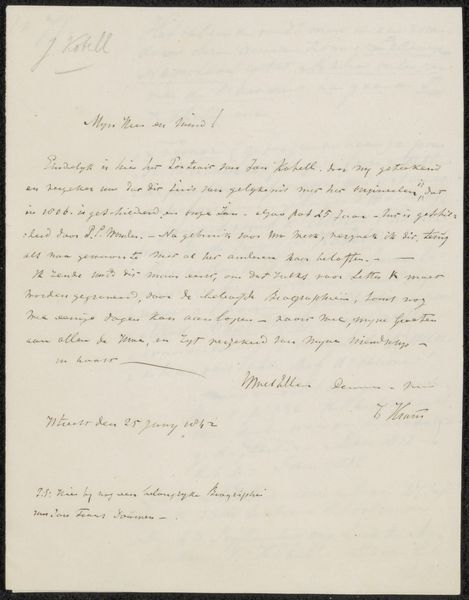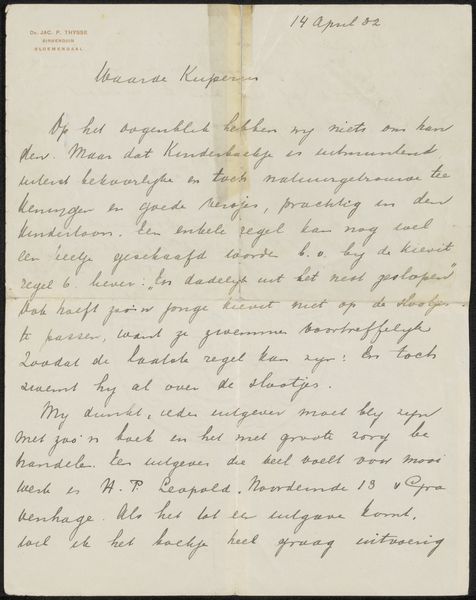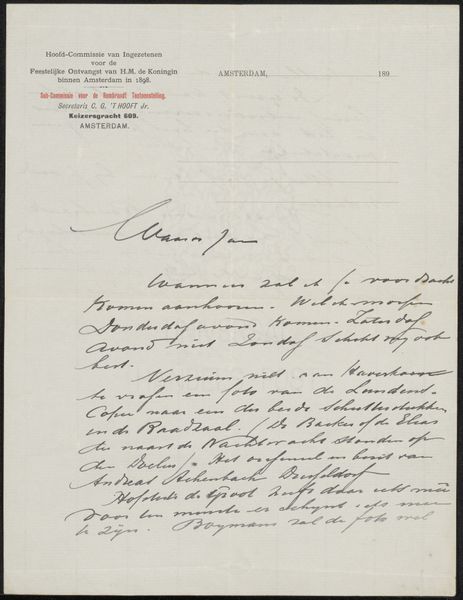
drawing, paper, ink
#
portrait
#
drawing
#
dutch-golden-age
#
paper
#
ink
Copyright: Rijks Museum: Open Domain
Curator: Okay, so we're looking at "Brief aan Jan Veth," potentially from 1898, an ink drawing on paper. Editor: Yes, exactly. The letter is incredibly intimate—it’s just the artist’s words to Jan Veth. What catches your eye about this work? Curator: Oh, where to even begin! It's less about *seeing* in the traditional sense, and more about *listening* to the echoes. The paper itself whispers stories—think of it, held in someone's hand a century ago, confiding thoughts, arguments, maybe even secrets! Do you think about who Jan Veth might be and why he would receive this letter? Editor: Possibly a friend? A colleague? Perhaps someone who’d understand the references in the writing... Curator: Precisely. It's a visual relic, you know? We piece together the fragments of intent. Editor: It's like archaeology with words, trying to unearth meaning from faded ink. Curator: Consider the artistry—the precise loops and dives, the confidence of each stroke. Calligraphy elevated! It reveals the author's character, a snapshot of their mind in motion. Don't you think handwriting itself is its own kind of portrait? Editor: It definitely has a kind of vulnerability about it. It seems much more human to me, almost like meeting the artist, than something digitally rendered, even though I can't read the actual words. Curator: Beautifully put. We learn to *read* not just text, but intent, history. A simple letter becomes a doorway. Editor: It makes you think about what our digital communications will look like centuries from now! Curator: Indeed! Will future generations find poetry in our pixels, I wonder? A fascinating thought to ponder.
Comments
No comments
Be the first to comment and join the conversation on the ultimate creative platform.
